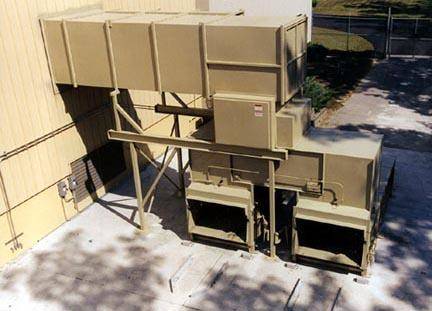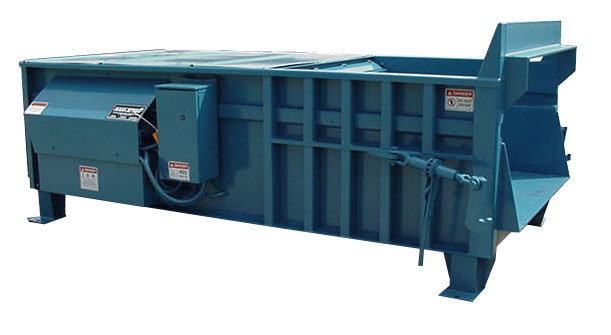How Waste Equipment Improves Effectiveness in Garbage Disposal Procedures
Waste Equipment plays an essential duty in improving the effectiveness of garbage disposal procedures. By using innovative sensing units and automation, these systems boost compaction cycles and keep an eye on lots capacities successfully. This integration not only saves energy yet likewise lowers pickup frequency and connected prices. As companies progressively embrace these innovations, the effects for functional sustainability and administration techniques come to be more clear. What various other advantages might arise from these innovations in waste Equipment?
The Duty of Advanced Sensors in Compaction Performance
Advanced sensing units play a crucial duty in boosting the effectiveness of trash compactors. These advanced gadgets keep an eye on different criteria, including lots ability, dampness degrees, and compaction cycles, enabling real-time adjustments. By properly determining the quantity of waste, sensors enable compactors to enhance their procedure, making certain that power usage is reduced while making best use of the quantity of waste refined.
Progressed sensors add to predictive upkeep by identifying possible issues before they lead to Equipment failing. This proactive method not just minimizes downtime but likewise expands the life expectancy of the compactor. On top of that, data gathered from these sensing units can be analyzed to boost functional techniques, bring about improved waste monitoring practices. Generally, the assimilation of advanced sensing units in garbage compactor considerably boosts their performance and operational efficiency, equating right into expense financial savings and a much more lasting method to waste disposal.
Longevity and Layout: Products That Matter
The resilience and style of garbage compactor hinge substantially on the materials made use of in their building. High-grade steel is typically the primary selection, giving stamina and resistance to damage. This durable product withstands the immense stress applied throughout compaction, making sure durability and dependability. Furthermore, elements such as hydraulic systems are usually crafted from corrosion-resistant alloys to avoid deterioration with time, enhancing operational performance.
Design likewise plays a vital duty in functionality; strategic supports and ergonomic forms can markedly influence efficiency. Suppliers often prioritize modular designs, enabling much easier upkeep and repairs. Additionally, innovations in finish innovations, such as powder finish, improve resistance to ecological variables, consisting of wetness and chemicals. Inevitably, the careful option of products not just improves the architectural stability of garbage compactor but additionally adds to their total effectiveness and performance in waste administration procedures.
Automation and Smart Technology in Waste Equipment

Automated compactors can optimize compaction cycles based on the quantity of waste, maximizing room and boosting operational performance. Combination with mobile applications enables individuals to keep track of and control compactors from remote areas, improving ease and responsiveness. By taking on these innovations, waste administration firms can not just boost their operational operations yet also add to more sustainable techniques by lessening waste and optimizing resource usage. Overall, automation and wise technology represent a significant leap ahead in the performance of garbage disposal operations.
Information Analytics for Enhancing Waste Management
Harnessing data analytics offers waste administration firms a powerful device for enhancing procedures and enhancing effectiveness. By accumulating and evaluating information from different sources, such as compactor efficiency metrics and waste generation patterns, firms can gain beneficial understandings. These understandings enable them to make informed decisions relating to collection routines, compactor usage, and upkeep needs.
Anticipating analytics can forecast waste generation patterns, enabling firms to assign resources more efficiently and avoid prospective overflows or underutilizations of Equipment. Real-time surveillance via information analytics additionally boosts the capacity to react promptly to functional obstacles, minimizing downtime and improving solution integrity.
Furthermore, incorporating information analytics with existing waste administration systems fosters a culture of constant enhancement. By identifying ineffectiveness and tracking performance with time, business can refine their procedures and adopt best techniques, eventually resulting in a much more effective and sustainable waste monitoring technique.
Price Cost Savings Via Improved Operational Efficiency
By decreasing and simplifying operations waste, companies can accomplish significant cost savings in their waste management procedures. Enhanced functional performance in garbage disposal decreases the frequency of pick-ups, leading to lower transport costs. Advanced waste Equipment enables for optimum compaction, optimizing container capability and decreasing the need for extra bins.
This increased effectiveness not only lowers garbage disposal charges yet also expands the life expectancy of Equipment, reducing upkeep expenses. Automated monitoring systems visit here give real-time data, permitting positive changes in waste handling, which can furthermore boost performance and reduce unintended expenses.
In addition, robust training programs for staff on Equipment use can lead to improved operational methods, further driving down costs. Ultimately, the integration of effective waste Equipment cultivates a cost-efficient waste management method that profits business financially while making sure smoother operations.
Environmental Effect: A Lasting Method to Waste Management

Executing reusing campaigns alongside compaction processes permits firms to draw away products from land fills, Industrial waste compaction equipment advertising round economic situation principles. Businesses that embrace ecologically pleasant techniques not just boost their corporate obligation yet likewise charm to progressively eco-conscious consumers. By prioritizing sustainability in waste monitoring, organizations can achieve a dual benefit: enhancing functional effectiveness while proactively adding to ecological conservation. This balanced method settings services as leaders in lasting practices, cultivating a much healthier planet for future generations.
Frequently Asked Concerns
Just How Usually Should Waste Equipment Be Maintained for Optimum Efficiency?
The frequency of maintenance for waste Equipment generally depends upon usage and supplier referrals - Industrial waste compaction equipment. Generally, examinations ought to happen quarterly, with complete servicing annually to assure peak efficiency and stop potential malfunctions or inadequacies
What Sorts Of Waste Can Be Refined in Trash Compactors?
Garbage disposal can refine various sorts of waste, including cardboard, paper, plastics, and non-hazardous food waste. However, users need to avoid compacting dangerous products, steels, and fluids to guarantee secure and reliable operation.
Are There Security Attributes in Modern Trash Compactors?
Modern garbage disposal typically include security features such as automated shut-off devices, emergency quit buttons, and sensor systems (Industrial waste compaction equipment). These improvements are created to protect customers from potential threats during operation, advertising a safer working environment
Just How Does Waste Equipment Effect Labor Needs?
The effect of waste Equipment on labor requirements is considerable; it typically reduces the requirement for hands-on labor, improving and streamlining processes performance. As a result, fewer workers are needed, enabling companies to allot resources Clicking Here much more effectively.
What Is the Average Life-span of a Garbage Disposal?
The typical lifespan of a garbage compactor commonly ranges between 10 to 15 years, relying on use, maintenance, and ecological aspects. Normal maintenance can expand this lifespan, making certain ideal efficiency and reliability throughout its operational years.
By adopting these innovations, waste administration business can not only enhance their functional process however also add to even more lasting techniques by decreasing waste and maximizing source usage. By lessening and enhancing procedures waste, business can accomplish substantial price financial savings in their waste monitoring procedures. Sustainable waste administration methods, especially in trash compactor operations, contribute considerably to reducing landfill waste and lowering carbon impacts. Modern waste Equipment is designed to optimize compaction, therefore lowering the quantity of waste needing disposal. Garbage compactors can refine various types of waste, consisting of cardboard, paper, plastics, and non-hazardous food waste.